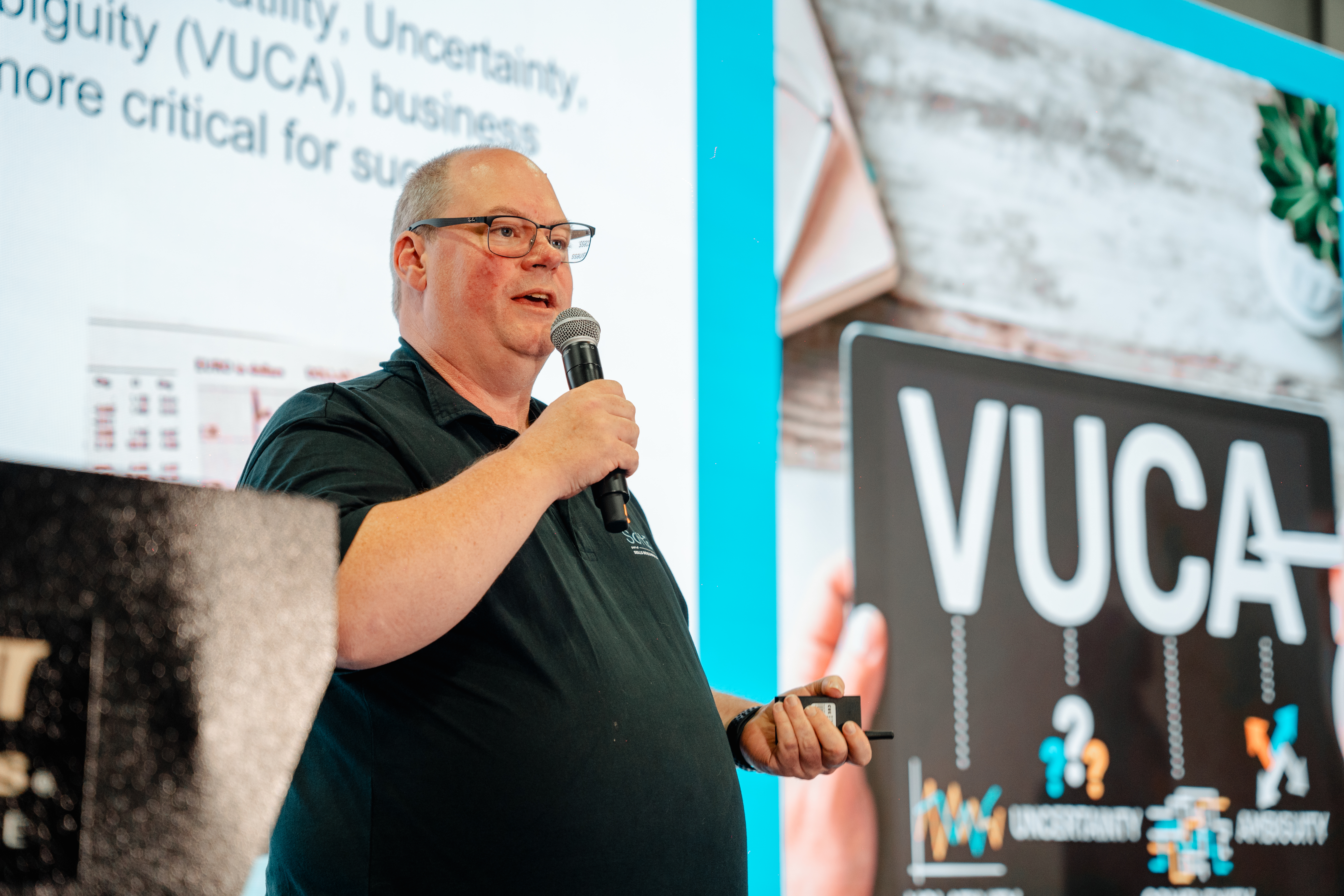How world-class learning journeys foster organisational agility
- Josephine Tan

Adapting to change is crucial for organisational success, requiring a mindset that welcomes risk-taking and experimentation to foster innovation and agility.
At last month’s HR Tech Festival Asia 2024, Craig Smith, Product Lead for Business Agility at SoftEd; and Shannon Ewan, CEO of the International Consortium for Agile (ICAgile), underscored this imperative. The central theme of their discourse revolved around the concept of achieving organisational agility through world-class learning journeys, and Smith and Ewan stressed the significance of embracing a growth mindset that prioritises continuous learning and experimentation to navigate complexity effectively.
A key point of emphasis was the shift from upfront planning (BDUF – Big Design Up Front) to a more iterative approach centred on experimentation (SDUF – Some Design Up Front). Contrary to the misconception that agile methodologies advocate for hasty development without proper planning, Smith and Ewan clarified the importance of investing time in discovery activities.
They told HRM Asia, “Traditional project management and delivery approach applied the concept of BDUF. This often consisted of in-depth analysis and business cases, and often took months or even years before a project could commence. Many people wrongly assume that the secret to agility is NDUF [No Design Up Front], however, this is an approach fraught with danger.”
“The ideal approach is SDUF—spending time on the discovery items that matter that are most valuable and getting started. Modern agile approaches combine elements of design thinking that allow us to think about the problem and experiment with solutions. It should not be forgotten that any work requires elements of discovery and delivery, however, in modern ways of working, these are more iterative than linear.”
The discussion also addressed the challenge of fostering a culture of experimentation and learning, especially in high-performing environments where mistakes might be discouraged. Smith and Ewan offered a fresh perspective of “failing safely”, reframing “FAIL” as “First Attempt in Learning”.
READ MORE: How technology is revolutionising talent management
They advocated for creating a culture of continuous learning supported by fast feedback loops, enabling teams to adapt quickly if solutions deviate from the desired outcomes. And regarding designated “learning zones”, Smith and Ewan expressed reservations, noting that such approaches may foster a checkbox mentality towards learning. Instead, they proposed cultivating an organisational culture that integrates learning into daily work, with robust leadership support.
“We have found that creating a culture of continual learning that has leadership support to be much more effective where learning is built and accepted as part of daily work,” they concluded. “That said, combining this with regular learning events such as continuous improvement initiatives or hackathons enables both a culture of learning and a culture of innovation.”






